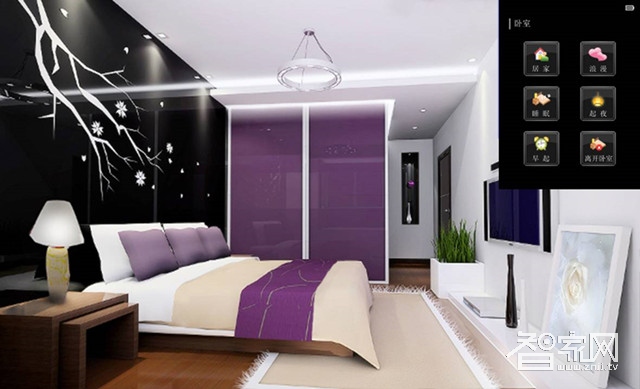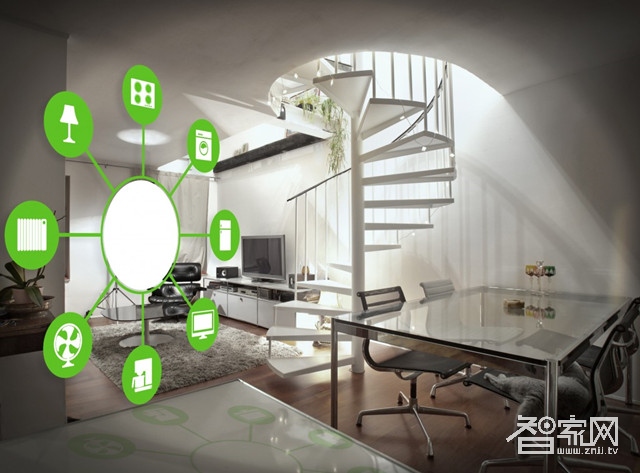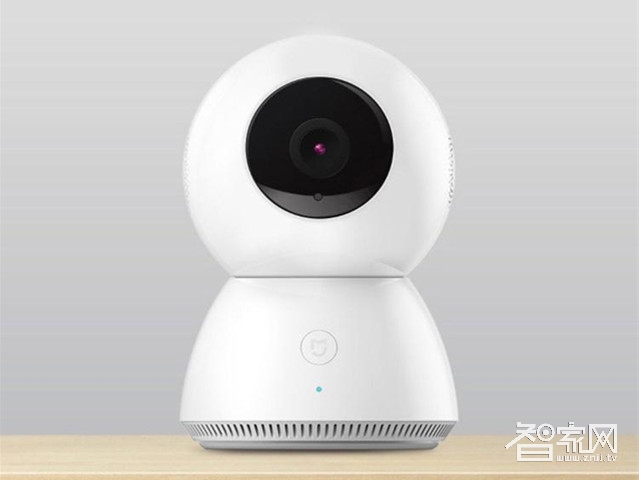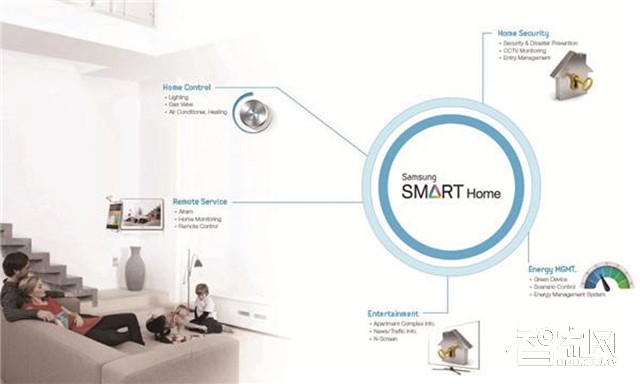Q&A | Smart home products easy to use? Smart home is a trend or a gimmick
Smart homes continue to capture the attention of consumers and industry experts alike. With a wide range of smart devices entering the market—from smart outlets and door locks to smart TVs—many are questioning whether these products truly deliver on their promises or if they’re just a passing trend. Let’s take a closer look at what people are saying about the future of smart homes.

History of Smart Home Development
User 1: Smart home is more than just a fad—it's a growing trend. The concept of smart homes has been around for decades, but it wasn't until 1984 that the first real "smart building" was created by United Technologies Corporation in Hartford, USA. This marked the beginning of the smart home era, where technology began to integrate into everyday living spaces.
A smart home integrates various technologies such as wiring systems, network communication, security, automation, and audiovisual tools to create a more efficient and comfortable living environment. It enhances safety, convenience, and energy efficiency while offering a more personalized lifestyle.
The early 2000s saw the emergence of smart home concepts, with the period from 2006 to 2010 being a time of rapid growth. According to research from the Internet of Things Research and Development Center of the Chinese Academy of Sciences, the global smart home market reached $71 billion in 2018, with China alone expected to hit $139.6 billion, making up 32% of the global market. By 2020, the total output value of smart homes could exceed one trillion yuan. This indicates that the next decade will be crucial for the development and integration of smart home technologies.
Many companies have entered the smart home space, including those focused on lighting systems like Philips and Lutron, home appliance systems like LG and Haier, and security systems from companies like Honeywell and Panasonic. Despite the diversity, the market is still in its early stages, with many players competing for market share.
Market Prospects for Smart Homes
Netizen 2: In my opinion, smart homes are definitely a trend. People always desire a better quality of life, and smart homes offer convenience, comfort, and efficiency. However, the current smart home industry isn’t without challenges. There is low consumer awareness, lack of standardization, and compatibility issues between different brands. These problems need to be addressed for the market to fully realize its potential.
Despite these hurdles, I believe that as technology continues to evolve, smart homes will become more integrated into daily life. In the next ten to twenty years, they may even replace smartphones as the central hub of our digital lives.
Netizen 3: Smart home is not just a passing fad. It's a multi-phase evolution. Phase one involves basic networking and scene control, phase two adds sensors and operating systems for M2M communication, and phase three introduces AI and C2M interaction. While some may dismiss it as a hype, the reality is that smart homes are progressing step by step. Whether people embrace it or not, the future is coming, and we’ll see it unfold over time.

Experience with Smart Products
Smart Router
Netizen 4: I’ve used Xiaomi routers and 360 routers, along with smart cameras and dashcams. If you don’t think I’m an ad dog, then you’d agree it’s pretty cool! Setting up a router used to be a hassle, but now you can do it all through your phone. You can even manage your Wi-Fi and share access with friends. That’s convenient!
Another example: smart cameras allow you to monitor your home from anywhere. I bought a TV box and installed the camera app on it, so I could watch the live feed on my TV 24/7. That’s pretty impressive, even if it’s not high-end. The key is that it works and it’s affordable.
Smart kitchen appliances also make life easier. You can set them up in advance, and when you get home, everything is ready. Smart homes aren’t just a gimmick—they're becoming more common, and soon most household items will be controllable via smartphone.
Smart Camera
Netizen 5: For example, setting up a traditional router was once a pain, but smart routers let you do it all from your phone. You can even share Wi-Fi with friends. And with smart cameras, you can monitor your home remotely. I bought a TV box and installed the camera app on it, so I could watch the live feed on my TV. That’s pretty cool, even if it’s not professional. The point is, it works and it’s cheap.
What about smart kitchen appliances? You can pre-set cooking times, and when you come back, your food is already ready. As more things become connected, I believe most household items will eventually be controlled via mobile phones.

Smart Appliances
Netizen 6: I recently bought a smart air conditioner from JD.com. Even though it requires a connection fee, it’s very practical. You can check its status remotely, adjust the temperature, and even turn it off from afar. The remote start feature is especially useful. After using it, I bought a smart socket to control my fan remotely. Next, I plan to get a smart camera for added security. It’s reassuring to know that the house is safe, even when we’re away.
I also hope for a device that can monitor indoor air quality, including CO2 levels, PM2.5, and formaldehyde. Real-time control would be great for maintaining a healthy living environment.
Netizen 7: I’ve used the 360 router, and it’s really convenient. You can use the app to set passwords, control user numbers, and even find out who’s using your network. It’s really cool. I also saw a smart air conditioner on Taobao with a mobile app that allows customization. I haven’t used it yet, but the reviews are positive. I think smart homes are here to stay, just like smartphones were once a luxury. Over time, they’ll become part of everyday life.
Smart Lock
Netizen 8: We have a smart lock at home, and it’s incredibly easy to use. Its main advantage is convenience. However, smart locks are still not widely adopted due to their high price—most models cost over 2,000 yuan. That limits the target audience. But as demand grows, prices will drop, and smart locks may eventually become standard on every front door.
Smart Socket and Smart Light
Netizen 9: Smart sockets and lights are among the most basic smart devices. A smart socket lets you control appliances remotely, and a smart light can detect movement, making it perfect for nighttime use. These simple, affordable devices bring real convenience to daily life, regardless of gender or age.

Industry Analysis of Smart Homes
Netizen 10: I work in the home improvement industry, and I believe smart homes are not just a trend—they’re the future. With the increasing popularity of smart devices and home networks, smart homes will play a major role in improving quality of life.
There are two types of smart homes: one is full-system customization, which is expensive and mostly available abroad, and the other is a more affordable, lightweight system that offers basic smart functions. While there are still technological gaps in China, the market is growing. With rising living standards and greater consumer awareness, smart homes are clearly on the rise.
Netizen 11: I spent time working with startups and interviewed many entrepreneurs in the smart hardware space. Smart devices, including smart homes, are not just short-term trends—they’re long-term opportunities. Some companies may try to jump on the bandwagon with poorly designed products, but many others are investing in real innovation. Product iterations are fast, and once consumers accept smart devices, they may quickly replace traditional ones.
As a millennial, I love the tech-driven features of smart products. No matter how practical they are, they bring me joy and make me more likely to buy them.
In conclusion, the views shared by netizens highlight that smart homes are more than just a passing trend. With continued technological advancement and improved living standards, smart homes are likely to become a common part of everyday life. Products that are safe, easy to use, and reliable will eventually win over the market.
Related Suggestions:
Article: Q&A | What Are the Future Prospects of the Smart Home Market?
Recommended: Haikang Smart Lock, Philippine Smart Lock, Bass Smart Lock
Power Bank With Cable,Samsung Mini Power Bank,Powerbank with Built in Cable,Portable Charger with Built in Cable
Pogo Technology International Ltd , https://www.wisesir.net